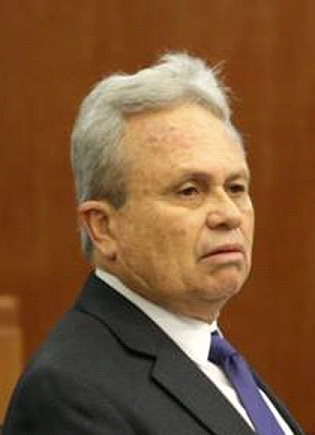(Trinidad Guardian) A mixed Budget bag for another challenging year.
Freeze on public sector hiring, VAT on apples and so-called “luxury” foods, curb on vehicle importation, mandatory Property Tax information—and possible WASA and T&TEC rate hikes ahead.
But also: people earning $7,000 and less won’t be paying tax, free laptops and Mi-Fi devices for needy students and a slew of incentives to expand technology business and jobs for youths.
Plus plans to privatise the Port Authority operations and sell National Petroleum gas stations.
These were among plans which Finance Minister Colm Imbert announced in his 2021 Budget on Monday. In a three-hour-plus address to the Parlia-ment, Imbert promoted his package.
“This Budget reflects our understanding of the requirements of our country for the medium-term to ensure that our economic recovery is as strong as possible,” he said during the Budget, themed “Resetting the Economy for Growth and Innova-tion.”
The package is meant to kickstart T&T to move on from the past fiscal year’s crisis caused by energy price shocks and COVID-19 pandemic costs.
Some immediate comments indicated the package wasn’t as bad as Government’s recent warnings on the economy had led people to believe it would be. Others, like UNC’s Vasant Bharath, said it was “lacklustre, nondescript, uninspiring and directionless.”
The 20201 Budget expenditure is set at $49.73 billion and revenue projected at $41.364 billion – both less than 2020 Budget levels. Imbert projected the deficit as $8.2 billion.
The Budget is based on an oil price of US$45 per barrel and a gas price of US$3 per mmbtu.
Imbert said 2020 was an exceptionally difficult year and the deficit for that was $16 billion—some $10b more than anticipated for that year. Financing of that deficit, just over $6 billion, has been withdrawn from the Heritage and Stabilisa-tion Fund.
While Imbert announc-ed no gasoline price hike, he confirmed a liberalisation of the fuel market from January 2021, when fixed retail margins for all liquid petroleum products will be removed. Petroleum retailers and dealers will be allowed to fix their own margins then.
He added, “Wholesale margins will remain fixed for the time being and an appropriate but reasonable tax will be introduced to compensate for the current fuel surplus that is generated on the sale of gasoline because of depressed oil prices.
“The net result should be little or no increase in the price of motor fuels at current oil prices. However, if the price of oil recovers, the price of gasoline and diesel will naturally increase proportionately.”
In this plan, Imbert also announced all NP gas stations will be put up for sale with first option to existing dealers.
To increase the VAT base, Finance Minister Imbert said the 12.5 per cent tax will now apply to luxury imported foods from January.
“… Such as lobster, escargot, smoked salmon, pâté, clams, strawberries, champagne, apples and grapes from January 1,” he said.
Imbert also announced moves to curb demand for purchase of new/used cars, which he said was costing T&T $2.5 billion per year in foreign exchange.
“To correct this unsustainable situation and suppress demand, as opposed to an outright prohibition, we propose to remove all tax concessions on the importation of private motor cars. All private motor cars will now attract customs duty, motor vehicle tax and Value Added Tax, with the lowest rates of duty and tax being imposed on hybrid cars, electric cars, CNG cars, and small engine cars below 1,500cc, to encourage their use. This begins October 20.”





